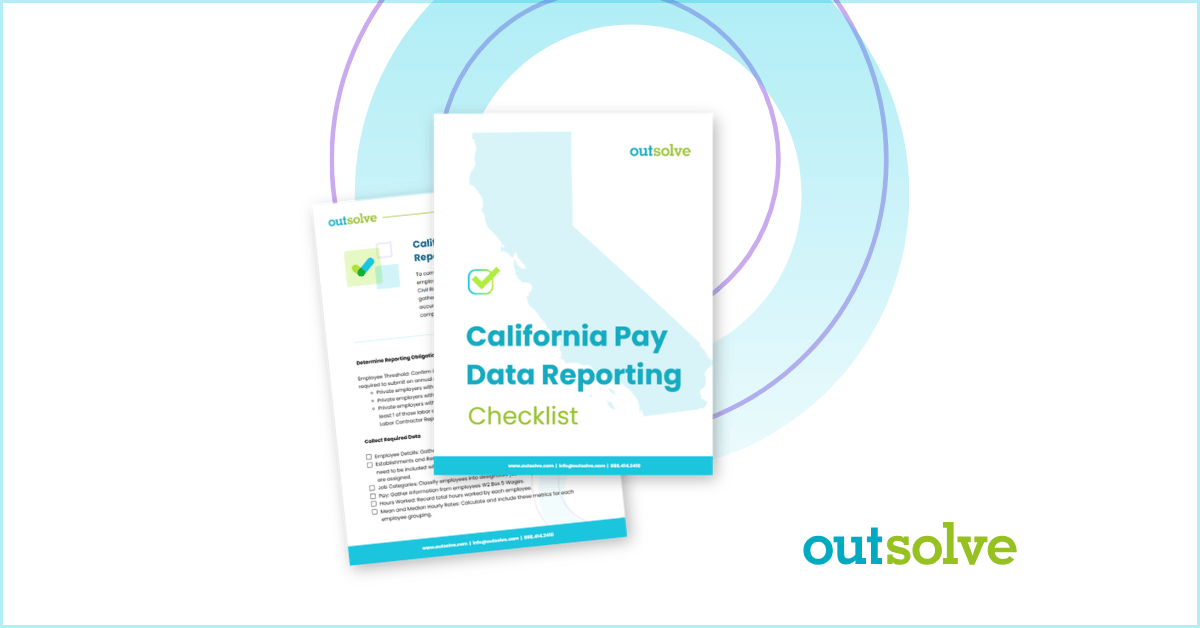1 min read
Maryland's New Wage Transparency Law
 Desiree Throckmorton, SPHR
:
Oct 16, 2024 10:45:00 AM
Desiree Throckmorton, SPHR
:
Oct 16, 2024 10:45:00 AM
.png)
Maryland's new wage transparency law (SB 525/HB 649) is in force as of October 1, 2024 and requires all public and private employers to include detailed compensation information in all job postings, internal and external. The law covers positions performed at least partially in Maryland, including remote and hybrid roles. There is no minimum employee requirement for coverage under this law. OutSolve offers a helpful Maryland Pay Equity Checklist (see below) to assist you in complying with this new law.
Job Posting Requirements
- Wage Range: Minimum and maximum hourly or salary wage, determined in good faith.
- Benefits and Other Compensation: A general description of benefits and any other compensation (e.g. bonuses, commissions). Other compensation includes "Board, lodging, or other advantage provided to an employee for the convenience of the employer." For example, a ski lift operator position includes housing during employment. The posting must also include a separate range of pay for each location or opportunity, if the posting involves multiple locations or multiple opportunities at different levels of seniority. If no job posting is made, employers must disclose this information before discussing compensation with the applicant and upon the applicant's request.
- Record Keeping: Maintaining records is required for wages, job classifications, and other employment conditions for three years after a position is filled or the job posting is made if the position remains unfilled.
Enforcement and Penalties
- First Violation: Compliance letter from the Maryland Department of Labor
- Second Violation: Civil penalty up to $300 per affected employee or applicant
- Subsequent Violations: Up to $600 per affected employee or applicant within three years of a prior violation
The Maryland Department of Labor issued FAQs for further interpretation of the law Equal Work for Equal Pay- Wage Range Transparency Frequently Asked Questions- Employment Standards Service.
In addition, OutSolve offers you our custom Maryland Pay Equity Checklist- click the link below. This checklist helps you understand everything you have to do comply and we stand ready to assist you in this on-going effort to maintain best compensation practices at your organization.
Desiree Throckmorton is a seasoned HR compliance professional with over two decades of experience, including significant tenure at a Fortune 500 company. In her current role as VP I-9 Operations, Senior Consultant, she provides expert guidance to enterprise-level clients on critical issues such as Form I-9 compliance, non-discrimination analysis, and best practices for pay equity and transparency. Throughout her career, Desiree has demonstrated exceptional proficiency in conducting internal proactive audits and managing external reactive audits. She has a keen eye for identifying risk areas in recruitment practices and excels in performing adverse impact analyses on employment decisions. Additionally, Desiree has successfully launched comprehensive, enterprise-wide training programs focused on Equal Employment Opportunity and Form I-9 compliance. Desiree holds the SPHR certification and has earned a Bachelor's Degree from California State University and a Master's Degree from Roosevelt University.
Weekly OutLook
Featured Posts

5 Key Compliance Items HR Can’t Afford to Ignore

HR Compliance Checklist: What Every HR Pro Needs to Know
Related Posts

outRageous HR: HR Plans vs. Reality: Why Execution Falls Apart (and How to Fix It)
We all know the feeling. In Q4, strategic planning is in full swing, and the roadmap for the upcoming year looks pristine. You have a solid...
.png)
Beat the Rush: Outsource Federal Reporting Requirements in Q1
The beginning of the year usually feels like a fresh start that brings new business initiatives, goals, and strategies. The work you do between...

California Pay Data Report Checklist for HR Professionals
With changes regarding California pay data reporting taking effect in 2026 and 2027, this is the checklist you need to stay confident that you've got...


